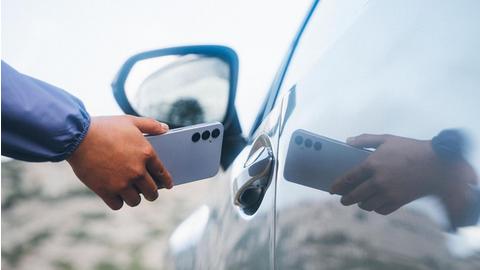Companies news
Key Highlights of the 2021 Waste and Recycling Statistics

In 2021, about 6.94 million tonnes of solid waste was generated, of which 3.83 million tonnes were recycled. Waste generated by the non-domestic and domestic sectors both increased in 2021, from 4.12 million tonnes and 1.77 million tonnes respectively in 2020, to 5.12 million tonnes and 1.82 million tonnes respectively in 2021. Recycled waste attributed to the non-domestic and domestic sectors likewise increased, from 2.81 million tonnes and 0.23 million tonnes respectively in 2020, to 3.58 million tonnes and 0.24 million tonnes respectively in 2021.
- Economic activity picked up in 2021, resulting in more waste generated and recycled
- 2020 was an anomalous year with lower waste generation and recycling rates due to the impact of COVID-19, particularly during the Circuit Breaker period (April to May 2020) when activities were curtailed. The pick up in economic activity, and resumption of business and social activities in 2021 have led to a 10 per cent increase in waste disposal, while 26 per cent more waste was recycled.
- Compared to the period before COVID-19 pandemic in 2019, 2021 saw 5 per cent less waste generated and 5 per cent more waste disposed, with the amount of waste recycled being lower by 11 per cent.
- Due to lower construction activity and export market demands for recyclables in 2021, the amount of waste recycled is lower than the pre-COVID-19 levels, especially for waste streams such as Construction and Demolition, Wood and Non-Ferrous metal. The overall recycling rate improved from 52 per cent in 2020 to 55 per cent in 2021. The recycling rate of the non-domestic sector increased from 68 per cent in 2020 to 70 per cent in 2021, while that of the domestic sector remained unchanged at 13 per cent in 2021. The recycling rates of most waste streams, including that for Plastic and Food waste, were higher than in 2019. However, the recycling rate of Paper/Cardboard, which is also a major waste stream, is lower than the 2019 level.
- With waste generation growing as economic activities ramp up, there is greater urgency to shift from a linear to a circular economy, which is a key part of the Zero Waste Masterplan and the Singapore Green Plan. It will take a whole-of-nation effort to achieve our vision of a Zero Waste Nation. NEA will continue to engage businesses and consumers to put in place more sustainable practices.
- Plastic, Horticultural, Wood, and Paper & Cardboard waste recycling rates
- The recycling rate of Plastic waste increased from 4 per cent in 2020 to 6 per cent in 2021. There was a 60 per cent increase in the amount of Plastic waste recycled with more processed locally and exported. More needs to be done to improve the recycling rate of Plastic waste as it remains low despite the increase.
- The recycling rate of Horticultural and Wood waste increased from 80 per cent and 64 per cent in 2020 to 83 per cent and 76 per cent respectively in 2021. Waste generators sent more of such wastes to biomass and composting facilities for recycling instead of the Waste-to-Energy plants.
- The recycling rate of Paper/Cardboard edged up marginally from 38 per cent in 2020 to 39 per cent in 2021. It remains below 2019’s 44 per cent as less Paper/Cardboard recyclables are exported than in 2019 while there is an increase in Paper/Cardboard waste disposed of.
- Increase in household waste recycled
- More waste was being disposed of by the domestic sector as the work-from-home trend continued into 2021. This was matched by a corresponding increase in the amount of recyclables collected under the National Recycling Programme (NRP) by 14 per cent, contributing to 40 per cent of the increase in the amount of waste recycled by the domestic sector. Overall, the domestic recycling rate remained unchanged at 13 per cent in 2021.
- Through outreach such as the Recycle Right campaign, NEA will continue to encourage households to recycle more and recycle right. To cultivate good recycling practices, educational and user-friendly content has been developed to guide the public on items that can and cannot be recycled.
- Encouraging sustainability practices in businesses and consumers
- While the recycling rates of most waste streams in 2021 were higher than the pre-COVID-19 levels of 2019, there remains room for improvement as we work towards realising the vision of being a Zero Waste Nation.
- Apart from implementing a disposable carrier bag charge at supermarkets from mid-2023, NEA is also working to introduce a Beverage Container Return Scheme to support plastics recycling and cultivate recycling habits among consumers.
- To encourage sustainable packaging waste management practices and support companies in fulfilling the Mandatory Packaging Reporting (MPR) requirement, NEA partners the Singapore Manufacturing Federation in the Packaging Partnership Programme (PPP) to build capability. Through webinars and resources, the PPP facilitates the exchange of sustainable packaging best practices and trends, to support the reduction of packaging which includes the use of Paper/Cardboard in e-commerce.
- NEA engages the premise operators of various types regularly to encourage the adoption of circular economy practices. NEA has published 3R guidebooks, which can be downloaded from NEA’s website. These include guidebooks for food waste minimisation and segregation for recycling, and sustainable packaging practices.
- Through the Say YES to Waste Less and Recycle Right campaigns, NEA encourages the public to make environmentally friendly choices in their daily lives and encouraging families and friends to do the same.



